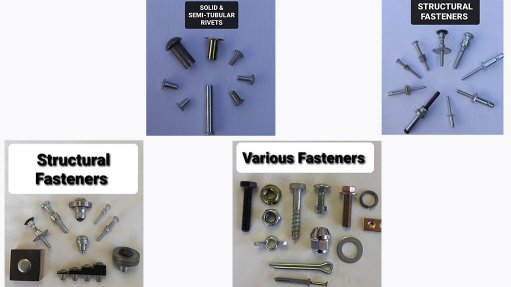Research ensuring sustainable future for Southern Africa’s sizeable citrus industry
Internationally recognised research conducted by Citrus Research International (CRI) and its network of collaborative research associations, is helping to protect Southern Africa's citrus industry against the threats of diseases and pests.
CRI says citrus exports contribute about R30-billion a year to the South African economy and support the employment of about 140 000 people on farm level.
Without top-level research on a range of technical issues, the industry would falter and export markets would close, it argues.
With this in mind, renewed support for the region’s exceptional plant health vigilance was offered at the twelfth Citrus Research Symposium, held in the Central Drakensberg from August 19 to 21, and hosted by the CRI.
"The cooperation between the role-players that attended the symposium is essential in keeping Southern Africa's citrus safe and in demand across the globe. Our industry has a history of keeping the laboratory and the orchards in touch, not just through events like this one, but through continual exchanges,” says Citrus Growers' Association of Southern Africa (CGA) CEO Justin Chadwick.
The CRI notes that the South African government is currently involved in two historic trade disputes at the World Trade Organisation (WTO) regarding the EU’s citrus import regulations.
The cases concern False Codling Moth (FCM) and Citrus Black Spot (CBS), both having been the subject of extensive research to enable effective control.
At the symposium, new research results on FCM were presented by researchers, including a novel FCM detection technique using the analysis of scent, as well as the fine-tuning of postharvest treatments of fruit to eliminate the presence of any surviving FCM larvae.
Further, CBS research presented at the symposium focused on a new matrix for CBS risk assessment of individual orchards that can assist growers, while another study identified naturally antifungal compounds in citrus rinds which could become part of an environmentally sustainable remedy for CBS.
"Information on plant diseases and pests might seem highly technical or obscure, but when you know that so many jobs and income depend on keeping citrus healthy, then it places it all in context.
“For instance, at the symposium, a researcher calculated that it costs the citrus industry R386-million a year to counter the fruit fly. Always improving is an economic imperative,” says CRI research entomologist Dr Aruna Manrakhan.
Another topic of discussion at the symposium was Huanglongbing (HLB), also known as Asian Citrus Greening.
CRI says Southern Africa is completely free from the disease, but HLB has recently devastated citrus industries in some other major citrus production regions in world, such as Florida in the US.
Details of the CRI's partnership with the University of Florida on HLB-resistant rootstock were also presented at the symposium.
"Breeding disease-resistant rootstocks takes time, but research on HLB resistance is looking promising. South Africa has time to prepare methods that can successfully avoid the HLB nightmare that has taken place in other countries and maintain production of export-quality fruit," says CRI citriculture portfolio manager Dr Paul Cronjé.
Working alongside the South African government to bolster biosecurity and market access is an important priority for CRI, together with enabling citrus growers to sustainably provide top-quality citrus fruit to consumers around the world.
The CRI currently funds and coordinates 131 active research projects and operates a wide-ranging research partnership model that encompasses 22 local and international research collaborations.
"We export to over 100 countries, and when consumers are enjoying South African citrus' superior quality and taste, they don't think of the enormous network of important role-players and events like the symposium, or the workshops, study groups, courses and other technology transfer channels. We give consumers a great product, and at events like this we take pride in the dedicated efforts of all role-players,” says CRI national extension manager Hannes Bester.
Comments
Press Office
Announcements
What's On
Subscribe to improve your user experience...
Option 1 (equivalent of R125 a month):
Receive a weekly copy of Creamer Media's Engineering News & Mining Weekly magazine
(print copy for those in South Africa and e-magazine for those outside of South Africa)
Receive daily email newsletters
Access to full search results
Access archive of magazine back copies
Access to Projects in Progress
Access to ONE Research Report of your choice in PDF format
Option 2 (equivalent of R375 a month):
All benefits from Option 1
PLUS
Access to Creamer Media's Research Channel Africa for ALL Research Reports, in PDF format, on various industrial and mining sectors
including Electricity; Water; Energy Transition; Hydrogen; Roads, Rail and Ports; Coal; Gold; Platinum; Battery Metals; etc.
Already a subscriber?
Forgotten your password?
Receive weekly copy of Creamer Media's Engineering News & Mining Weekly magazine (print copy for those in South Africa and e-magazine for those outside of South Africa)
➕
Recieve daily email newsletters
➕
Access to full search results
➕
Access archive of magazine back copies
➕
Access to Projects in Progress
➕
Access to ONE Research Report of your choice in PDF format
RESEARCH CHANNEL AFRICA
R4500 (equivalent of R375 a month)
SUBSCRIBEAll benefits from Option 1
➕
Access to Creamer Media's Research Channel Africa for ALL Research Reports on various industrial and mining sectors, in PDF format, including on:
Electricity
➕
Water
➕
Energy Transition
➕
Hydrogen
➕
Roads, Rail and Ports
➕
Coal
➕
Gold
➕
Platinum
➕
Battery Metals
➕
etc.
Receive all benefits from Option 1 or Option 2 delivered to numerous people at your company
➕
Multiple User names and Passwords for simultaneous log-ins
➕
Intranet integration access to all in your organisation














